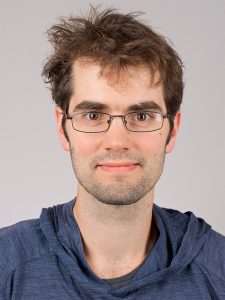
John Beale
Paul Scherrer Institute
Switzerland
EMBO Practical Course
The advent of serial crystallography at free electron laser sources and the following adaptation of these methods at 3rd and 4th generation synchrotrons have opened new possibilities to perform room temperature time resolved studies in macromolecular crystallography.
This course aims to train the next generation of researchers in
i) sample preparation: Participants will be trained and taught in the best practice to obtain homogenous microcrystals and in characterisation prior to loading using different sample delivery methods,
ii) crystal delivery methods and data collection at a 4th generation synchrotron serial crystallography beamline: The new ID29 and similar endstations at other sources, presents experimental setup and data collection protocols that are unique in the synchrotron facilities. The training will include data collections with different sample delivery methods as available to the user community,
iii) data reduction: Diffraction data are recorded from still microcrystals with large bandwidth high flux X-ray beams which requires the use of specifically developed and adapted software.
iv) analysis of the electron density map differences: To correctly interpret and model the electron density differences map to highlight structural changes induced by pump-probe and ligand mixing experiments.
The course is aimed at advanced PhD students and early-career scientists, working in X-ray crystallography, who have prior acquaintance of serial crystallography and willing to pursue projects requiring enzymatic reaction studies. Moreover, participants should clearly provide or show a direct intent of applying time-resolved serial crystallography to their research projects. In selecting participants, we look for scientific merits in presenting their motivation, immediate application of the methods learned, strong background in understanding various aspects of crystallography basics and of studying enzymatic reactions. As the course is to introduce participants to the forefront of structural biology, big data analysis will be extensively carried out. This would require background in basic programming or ability to use Linux command lines.
Participants should be able to apply what they have learnt to their own projects. For each module, the participants will learn the theoretical and practical aspects of latest developments in the field. After the course, they will confidently be able to conduct a time-resolved experiment to study enzymatic reactions

Paul Scherrer Institute
Switzerland
DLS, Didcot
UK
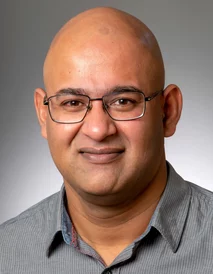
Max-Planck Institute, Gottingen
Germany
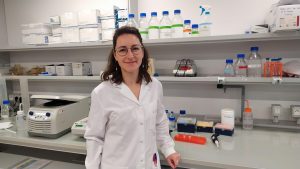
IBS Grenoble
France

IBS, grenoble
France
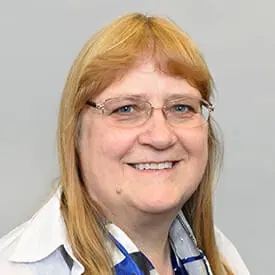
Arizona State University
USA
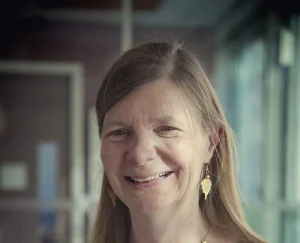
University of Oxford
UK
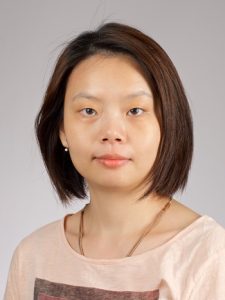
Swiss Light Source (SLS)
Paul Scherrer Institute
Switzerland
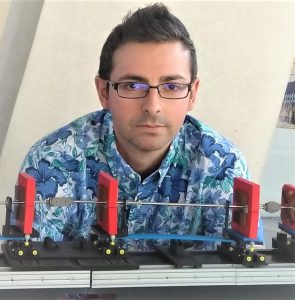
Consejo Superior de Investigaciones Científicas
Spain

University of Lubeck
Germany
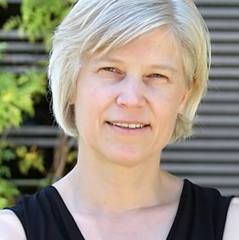
Arizona State University
USA
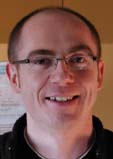
IBS, Grenoble
France

IBS, Grenoble
France
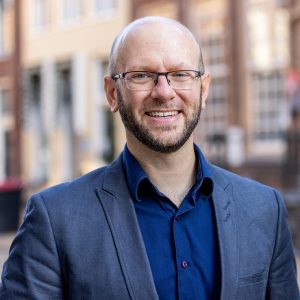
University of Groningen
Netherlands

Dectris
Switzerland
DESY, Hamburg
Germany
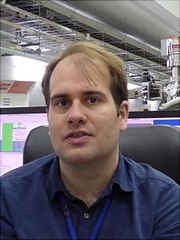
DESY, Hamburg
Germany
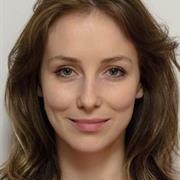
Swinburne University, Melbourne
Australia
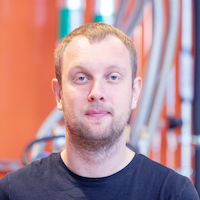
MAX IV Laboratory
Sweden

EMBL Grenoble
France
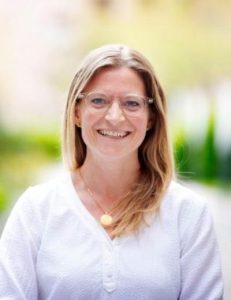
University of Gothenburg
Sweden

EMBL Grenoble
France
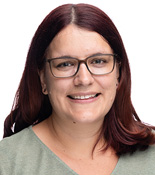
EMBL Heidelberg
Germany

EMBL Heidelberg
Germany
ESRF
France
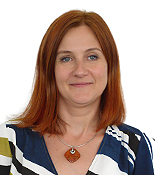
EMBL Grenoble
France
Are you on social media? Post using #EMBOTRSX and don’t forget to tag @EMBLEvents
Please note the below programme is still subject to changes
| Time (Europe/Berlin) | Session | Location |
|---|---|---|
| 14:30 – 16:30 | Onboarding session (access to eCampus learning platform), introduction on Zoom – introduction to the course – materials to be used and expectations from the participants – overview of the tools used during the course | EMBL eCampus |
| Time (Europe/Berlin) | Session | Location |
|---|---|---|
| 08:30 – 09:30 | Site entrance registration and Welcome coffee | |
| 09:30 – 09:45 | Kick-off note and course introduction | ESRF auditorium |
| 09:45 – 12:00 | Participants introduction / Flash Talks | ESRF auditorium |
| 12:05 – 13:30 | Lunch | EMBL – ILL Hallway |
| 14:00 – 15:00 | Lecture 1: Serial crystallography – brief history, scientific significance Petra Fromme – Arizona State University, USA | ESRF auditorium |
| 15:00 – 16:00 | Lecture 2: Introduction to beamlines for serial crystallography Daniele de Sanctis – ESRF, France | ESRF auditorium |
| 16:00 – 16:30 | Coffee break kindly supported by DECTRIS | EMBL – ILL Hallway |
| 16:30 – 17:15 | Lecture 3: Overview on X-ray detector technology Sofia Trampari – Dectris, Switzerland | ESRF auditorium |
| 17:15 – 18:00 | Discussion on FAIR Practice | ESRF auditorium |
| 18:00 – 19:00 | Poster session | EMBL – ILL Hall |
| 19:00 – 20:00 | Dinner | EMBL – ILL Hallway |
| Time (Europe/Berlin) | Session | Location |
|---|---|---|
| 09:00 – 09:05 | Overview of the day and Sample Preparation | ESRF auditorium |
| 09:05 – 09:30 | Lecture 4: What is a good sample? Ashwin Chari – Max-Planck Institute, Gottingen, Germany | ESRF auditorium |
| 09:30 – 09:55 | Lecture 5: How to grow microcrystals John Beale – Paul Scherrer Institute, Switzerland | ESRF auditorium |
| 09:55 – 10:25 | Coffee break | EMBL – ILL Hallway |
| 10:25 – 10:50 | Lecture 6: LCP crystallization Chia-Ying Huang – Swiss Light Source (SLS) Paul Scherrer Institute, Switzerland | ESRF auditorium |
| 10:50 – 11:15 | Lecture 7: In vivo crystallization Lars Redecke – University of Lubeck, Germany | ESRF auditorium |
| 11:15 – 11:40 | Lecture 8: Crystallization at anaerobic condition Yvain Nicolet – IBS Grenoble, France | ESRF auditorium |
| 11:40 – 12:05 | Lecture 9: TR-icOS spectroscopy Antoine Royant – IBS, Grenoble, France | ESRF auditorium |
| 12:10 – 13:30 | Lunch | EMBL – ILL Hallway |
| 13:30 – 16:00 | Practical Session 1 Practical sessions in different groups | Meeting point: EMBL – ILL Hallway |
| 16:00 – 16:30 | Coffee break | EMBL – ILL Hallway |
| 16:30 – 19:00 | Practical Session 1 continued Practical sessions in different groups | Meeting point: EMBL – ILL Hallway |
| 19:00 – 20:30 | Dinner | Bouillon |
| Time (Europe/Berlin) | Session | Location |
|---|---|---|
| 09:00 – 09:05 | Overview of the day Sample delivery & data collection | ESRF auditorium |
| 09:05 – 09:30 | Lecture 10: Delivery using injectors Julien Orlans – ESRF, France | ESRF auditorium |
| 09:30 – 09:55 | Lecture 11:Delivery using injectors and tape-drives Pedram Mehrabi – UHH Hamburg, Germany | ESRF auditorium |
| 09:55 – 10:25 | Coffee break | EMBL – ILL Hallway |
| 10:25 – 10:50 | Lecture 12: Mixing and microfluidics Alexandra Ros – Arizona State University, USA | ESRF auditorium |
| 10:50 – 11:15 | Lecture 13: Best practice for time-resolved experiments Arwen Pearson – CFEL Hamburg, Germany | ESRF auditorium |
| 11:15 – 11:40 | Lecture 14: Laser activation for time-resolved experiments Wiktor Szymanski – University of Groningen, Netherlands | ESRF auditorium |
| 11:40 – 12:05 | Lecture 15: Serial crystallography theory and statistics/data quality Nadia Zatsepin – Swinburne University, Melbourne, Australia | ESRF auditorium |
| 12:05 – 13:30 | Lunch | EMBL – ILL Hallway |
| 13:30 – 16:00 | Practical Session 2 Practical sessions in different groups | Meeting point: EMBL – ILL Hallway |
| 16:00 – 16:30 | Coffee break | EMBL – ILL Hallway |
| 16:30 – 19:00 | Practical Session 2 continued Practical sessions in different groups | Meeting point: EMBL – ILL Hallway |
| 19:00 | Free evening |
| Time (Europe/Berlin) | Session | Location |
|---|---|---|
| 09:00 – 09:05 | Overview of the day Serial crystallographic data processing | ESRF auditorium |
| 09:05 – 09:30 | Lecture 16: Pink beam time-resolved serial crystallography Alexandra Tolstikova – DESY, CFEL Hamburg, Germany | ESRF auditorium |
| 09:30 – 09:55 | Lecture 17: CrystFEL – best practice Thomas White – DESY, CFEL Hamburg, Germany | ESRF auditorium |
| 09:55 – 10:25 | Coffee break | ESRF lobby |
| 10:25 – 10:50 | Lecture 18: Dials / cctbx.xfel/XIA2 James Beilsten-Edmands – DLS, Didcot, UK | ESRF auditorium |
| 10:50 – 11:15 | Lecture 19: Interpretation & calculation of Difference electron density map Elke de Zitter – IBS Grenoble, France | ESRF auditorium |
| 11:15 – 12:05 | Lecture 20: Paying attention to radiation damage in serial data Elspeth Garman – University of Oxford, UK | ESRF auditorium |
| 12:05 – 13:30 | Lunch | EMBL – ILL Hallway |
| 13:30 – 15:30 | Practical Session 3 Practical sessions in different groups | Meeting point CIBB Seminar room at EMBL – ILL Hall |
| 15:30 – 16:00 | Coffee break | EMBL – ILL Hallway |
| 16:00 – 18:30 | Practical Session 3 continued Practical sessions in different groups | Meeting point CIBB Seminar room at EMBL – ILL Hall |
| 19:00 – 19:15 | Meeting at site entry to depart for Gala Dinner | Site entry |
| Gala dinner at Chateau de la commanderie |
| Time (Europe/Berlin) | Session | Location |
|---|---|---|
| 09:00 – 09:05 | Overview of the day Group activity | ESRF auditorium |
| 09:05 – 10:50 | Brainstorming: Participant groups will work on ideas/powerpoint | ESRF auditorium |
| 10:50 – 11:10 | Coffee break | EMBL – ILL Hallway |
| 11:10 – 11:40 | Course Evaluation | ESRF auditorium |
| 11:40 – 12:05 | Closing Remark | ESRF auditorium |
| 12:05 – 13:30 | Lunch and Departure | EMBL – ILL Hallway |
The course is limited to 20 participants. For selection purposes, please note that your application will not be considered without a letter of motivation.
Registration fees include accommodation (location TBC), all meals throughout the duration of the course, admission and course materials. Travel expenses are NOT covered with the registration fee.
| Academia | €425 |
| PhD Student | €425 |
| Industry | €1000 |
A letter to support your visa application will be issued, on request, once payment of the registration fee is confirmed. We recommend that you book your visa appointment as soon as possible, to avoid any delay with your visa application.
The registration fee should be paid only after acceptance to the course. The results will be announced approximately 2-3 weeks after the application deadline.
After you have logged in and successfully registered, you will receive an email asking you to submit your motivation letter. Click on the link provided and enter your motivation letter in the text box provided. Alternatively you can submit your motivation letter by clicking on the link on the confirmation page directly after registering.
Instructions
Please note:
For detailed instructions, please watch our video on how to submit a course motivation letter.
For further information about registration and motivation letter submission please refer to the FAQ page.
Limited financial assistance is provided by the EMBL Advanced Training Centre Corporate Partnership Programme and EMBO in the form of registration fee waivers, travel grants and childcare grants.
Your place in the meeting is only confirmed by paying the registration fee, which is mandatory even when receiving a fee waiver.
The fee waiver will cover the registration sum that you have paid to attend the course.
The travel grant will cover the cost of travel (airfare, train, bus, taxi, accommodation, visa, and/or registration fees*) and is provided up to specified caps which are normally as follows:
– up to €400 for participants travelling to an EMBL Course within Europe.
– up to €1000 for participants travelling to an EMBL Course from outside Europe.
– up to €500 for any participant travelling to an EMBO Practical Course.
– up to €1000 for any participant working in Chile, India, Singapore or Taiwan travelling to an EMBO Practical Course.
– up to €700 for any participant working in Croatia, Czech Republic, Estonia, Greece, Hungary, Italy, Lithuania, Luxembourg, Poland, Slovenia, and Turkey travelling to an EMBO Practical Course.
*Registration fees are only covered for EMBO Practical Courses
The organisers may reduce the grant cap to accommodate more participants. Recipients will be notified of their travel cap amount when they are informed of the outcome of their application. Original receipts must be provided with your signature for all costs incurred within two months of completion of travel. Scanned copies cannot be accepted.
There is the possibility to apply for a childcare grant to offset child care costs incurred by participants, speakers, trainers and organisers when attending a course. Eligible costs include (but are not limited to) fees for a babysitter or child-care facility and travel costs for a caregiver. Please note that priority will be given to early-stage researchers. There is a limited amount of funding available for the childcare grants and funds will be distributed amongst eligible applicants.
Applies to selected courses only. Availability will be indicated during the motivation letter submission process.
This grant covers costs related to your attendance at the course (registration, travel and accommodation costs). The grant is restricted to PhD students and postdocs who conduct basic biomedical research.
Whether you are eligible to apply for a travel grant, depends on when you received your university entrance qualification (e.g. Abitur, A-Levels, High School Diploma, Final State Examination):
– for PhD and MD students, as well as graduates, the university entrance qualification must not have been obtained more than 11 years ago at the time of the envisaged course
– for postdocs, the university entrance qualification must not have been obtained more than 13 years ago at the time of the envisaged course
You may apply for financial assistance when submitting your motivation letter for courses. In your application, you will be asked to answer questions regarding why your lab cannot fund your attendance and how your attendance will make a difference to your career. Application for financial support will not affect the outcome of your registration application.
For the Boehringer Ingelheim Fonds Travel Grant, there is a pre-application question during the motivation letter submission process, and if selected you will be requested to complete a standard form and documentation consisting of your travel expense estimation.
The scientific organisers will select the recipients of registration fee waivers and travel grants during the motivation letter or abstract selection process. Results will be announced approximately 6 – 8 weeks before the event start date, however for some events this may be delayed. Selection results do not impact your admission to the meeting. Selection for registration fee waivers and travel grants is based on scientific merit, your current work or study location, the reasons for needing financial support, and the impact this event will have on your career.
Childcare grants will be allocated in the same timeframe (6-8 weeks before the event start date). Please note that priority will be given to early-stage researchers.
Costs will be reimbursed after the meeting only once a reimbursement form and original receipts (from travel costs) have been received.
See our list of external funding opportunities and for further information about financial assistance please refer to the FAQ page.
Reservations have been made for course participants at the guesthouse located in the EPN campus which hosts the EMBL Grenoble site, as well as at the residence Séjour & Affaires Marie Curie. More details will be available soon. Note, accommodation is included in the registration fee.
Address: EMBL Grenoble, 71 Av. des Martyrs, 38000 Grenoble, France
From Lyon-Saint Exupéry Airport take the airport shuttle bus Lyon-Saint Exupéry–Grenoble counter (Satobus) inside the airport or in the bus. A single ticket costs 22€, a return ticket 33€.The stop “Place de la Résistance” is within easy walking distance of the EMBL site.
From Grenoble take Tram B towards “Resistance roundabout” and exit at “Grenoble Presquile”. The site entry is 350m away from the stop.
For further information on getting to EMBL Grenoble visit our Travel Information page.
Information will be provided ahead of the course about installing any software required.
The EMBL eCampus learning platform will be used to collaborate, communicate and network with all of the course participants. All participants will receive information on how to join shortly before the course. We recommend using Chrome, Safari or Mozilla Firefox browsers for eCampus.
At the mandatory on-boarding session on Wednesday, 5 June the functionalities of the platform and course content will be further explained.
All participants must bring their own laptops
Updated information will be provided closer to the time of the on-site module.
Event sponsors
Event supporter
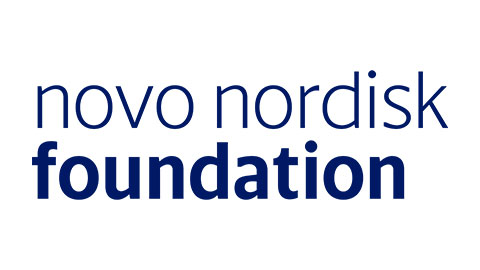
Sponsorship opportunities
We offer a variety of event sponsoring possibilities, with the flexibility to select a set sponsorship package or combine individual sponsorship options to suit your event budget. Discounts are available for companies sponsoring multiple events at EMBL Heidelberg. View other events, or contact sponsorship@embl.de for further information.
If you are interested in becoming a media partner of this event, please visit our media partnerships webpage.
EMBL wishes to warn sponsors of EMBL conferences and courses of fraudulent schemes purporting to offer sponsorship opportunities on behalf of EMBL or affiliated with EMBL officials. One current scam campaign of which we are aware is conducted using the name ‘Judy Eastman’ (judy@gopcontact.a2hosted.com) and entails approaches to sponsors offering sponsorship opportunities on EMBL’s behalf. Please be kindly advised that all relevant communication regarding sponsorship of EMBL conferences, symposia and courses is handled by EMBL directly and is sent from an official EMBL account. EMBL does not work with any external providers on sponsorship acquisition.
Please also note that:
Suspicious communications purportedly from, for or on behalf of EMBL should be reported to EMBL at the following email address sponsorship@embl.de.

Date: 8 - 12 Jul 2024
Location: EMBL Grenoble
Venue: EPN Campus, Grenoble
Deadline(s):
Application: Closed
Organisers:
Contact: Sophie Dutzi